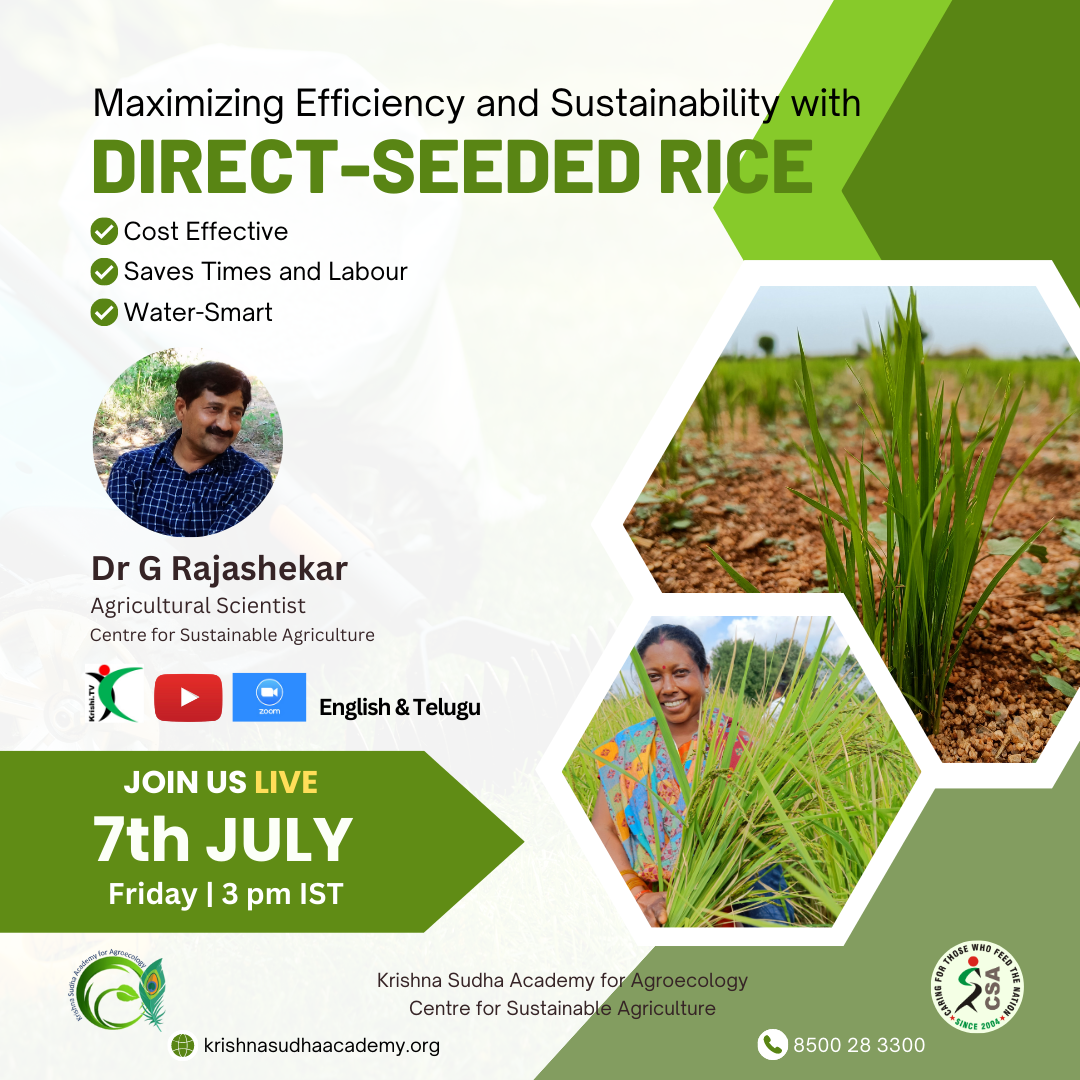
- This event has passed.
Direct-Seeded Rice: Maximizing Efficiency and Sustainability
Welcome to our 7th session under Knowledge Spectrum Series (KSS), jointly by us and the Centre for Sustainable Agriculture (CSA)
Please scroll down for the details
Context
Rice is life, more than 65% of people depend on rice as a staple food and more than 35% of cropped area is under rice. At the same time, rice consumes the highest amount of water and fertilisers and has a significant impact on the environment. The water consumption is nearly 60 lakhs lit/acre and nearly 5000 lit kg of rice. The stagnated water results in methane and nitrous oxide from fertilisers are responsible for a high GHG footprint of about 10 tons of carbon equivalent per acre per season. Also, puddling is done to prevent infiltration and destroys soil structure. In this context shifting towards sustainable rice production is essential. Direct-seeded rice is one such initiative to grow rice without puddling and stagnated water.
Against this backdrop, join the discussion with Dr G Rajashekar, an agricultural scientist from the Centre for Sustainable Agriculture, with more than 20 years of experience in organic farming and establishing seed systems. We will address the challenges in cultivating rice crops and how direct-seeded rice can address those challenges. Our aim is to explore how we can transform the challenges into an opportunity.

